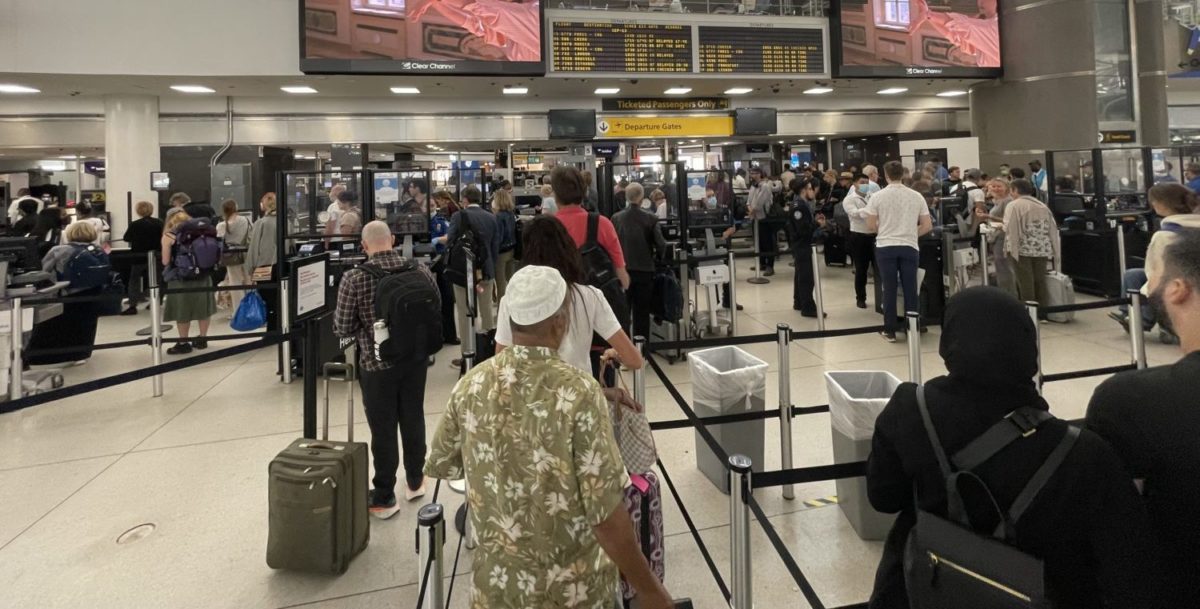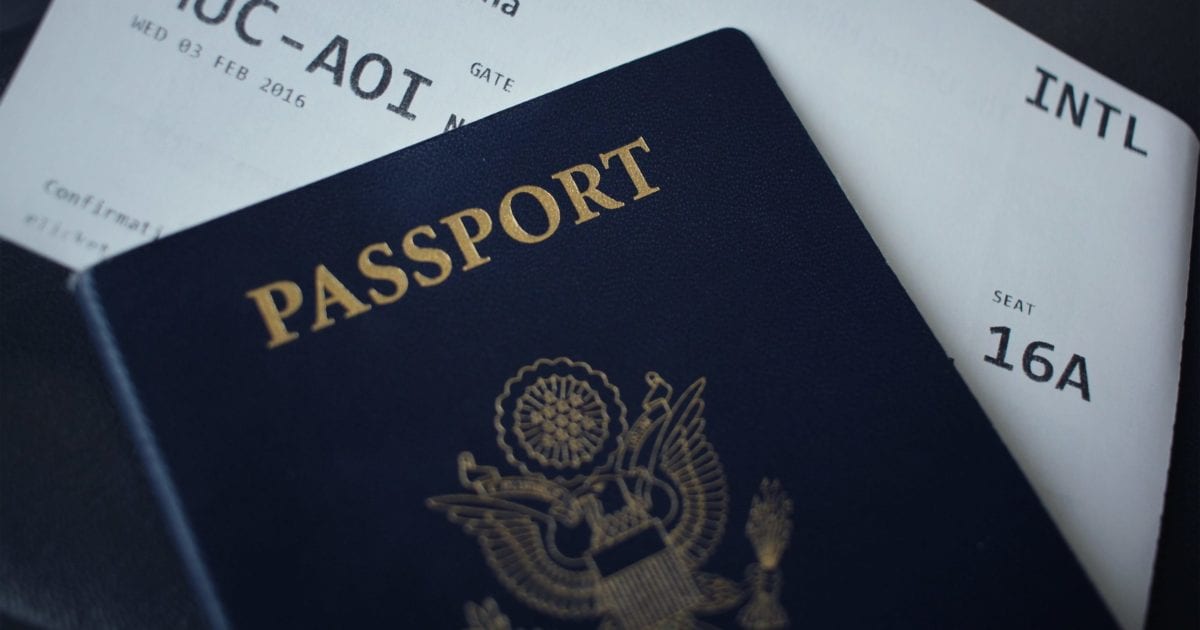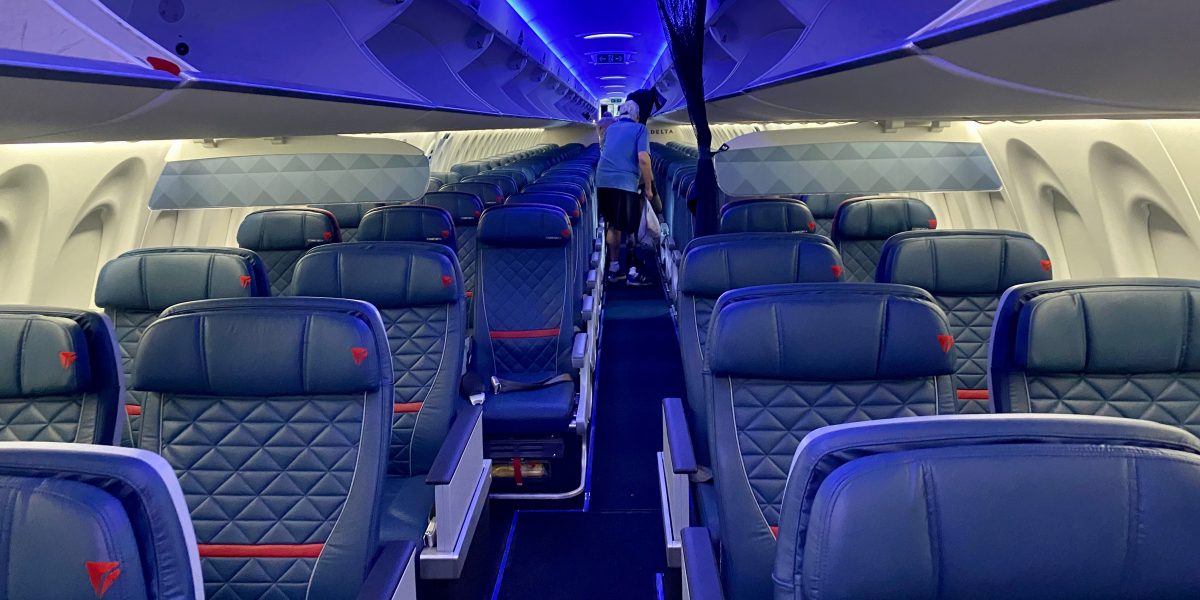The federal government officially plunged into a shutdown as Tuesday turned to Wednesday. And with airports, air traffic control, and the TSA all largely operating under the umbrella of the federal government, travelers could face some delays – albeit likely minor ones.
After weeks of back-and-forth and failed attempts to pass a last-ditch budget, the federal government ceased all non-essential operations Wednesday morning. While airports and airport security checkpoints will remain open and TSA agents will remain on the job, some travelers in the U.S. will feel the pain depending on how long the shutdown lasts. Past government shutdowns indicate that things could slow down the longer a shutdown drags on.
In 2018, the U.S. government shut down for a record five weeks. While planes kept flying, problems mounted as the stoppage dragged on: TSA workers began calling in sick rather than report for unpaid work, Global Entry applications stood in limbo, and some airlines' new planes and routes were kept on the ground.
Could we be in for more of the same? Only time will tell. But the longer a shutdown drags on, the worse it could get for travel. Here's a look at what's at stake this time.
Planes Will Keep Flying, But…
Airport workers like air traffic controllers are considered essential employees so they'll continue to work throughout the shutdown, making sure planes take off and land as normal. Travelers don't have to worry about canceling any upcoming trips.
But ahead of past government shutdowns, federal officials warned it could lead to more issues in the long run by exacerbating an air traffic controller shortage that has caused countless flight delays and cancellations. With the government shut down, all hiring and training of additional air traffic controllers ceases. So while things could move smoothly throughout a shutdown with current employees still on the job, it could lead to more disruptions in the future.
Air traffic controllers will continue to work without pay during the shutdown.
Expect Longer Lines at Security (Eventually)
Similarly, TSA agents will also work without pay during the shutdown, meaning a shutdown won't lead to airport security agents walking off the job … at least not right away.
TSA agents are deemed essential employees and are required to work. So while TSA checkpoints at airports should continue to operate as normal, that could change the longer the shutdown drags on.
That's exactly what happened in the previous shutdown before the pandemic: TSA agents began calling in sick, leading to some lengthy delays at security. The problem even got so bad in Miami (MIA) that the airport closed one of its terminals early on the weekends, forcing some flights to depart from different terminals.
TSA agents are some of the lowest-paid workers in the federal workforce at an understaffed agency. Working unpaid can take its toll.
It's impossible to guess whether security will be a breeze or a nightmare for your next flight. Play it safe: Arrive earlier than you normally would, especially over the holidays and if we get through next week with no signs of a federal spending package.
What About Getting Global Entry or TSA PreCheck?
Global Entry is a must-have for international travelers, allowing you to breeze through customs and immigration after returning to the U.S. And better yet, you can get it for free with a handful of different credit cards.
But once a shutdown begins, everything grinds to a halt.
While TSA agents are deemed essential and required to work during a shutdown, that's not the case for Customs and Border Protection employees. Most Department of Homeland Security workers will continue working through the shutdown, there will likely be delays for new Global Entry applications and in-person interviews – the final step in your Global Entry enrollment. This is because Global Entry enrollment is deemed non-essential during this time.
Bigger picture, the last federal government shutdown contributed to a massive backlog of applications that persists today. It's part of the reason why many Global Entry applicants still wait months – in some cases, more than a year – in order to get conditional approval. This time around, however, Global Entry isn't facing near the swell of interest as it was last time around. In fact, Global Entry interviews were as easy to get as ever just a few weeks ago.
But if you've already got Global Entry, you're set. You should have no problem cruising through customs and immigration. If not, check out Mobile Passport in the meantime. This free smartphone app will get you into a dedicated fast lane when returning to the U.S.
TSA PreCheck, the trusted traveler program that helps you get through security faster, works a bit differently. TSA PreCheck enrollment centers will continue to operate, so you'll still be able to apply for and finish your TSA PreCheck enrollment during a shutdown.
Just bear in mind: If the shutdown drags on, even travelers with PreCheck on their boarding passes may feel the pain in the security queues.
Can I Still Get a Passport?
After brutally long waits of six months or more a few years ago, passport applications are moving faster than ever in 2025. A shutdown won't bring passport processing to a halt … but it may not help, either.
The State Department has previously said that passport and visa services in the U.S. and abroad will continue as the budget permits. However, passport agencies located inside federal government building would also shutter during a shutdown, which could would lead to further delays.
Currently, it takes four to six weeks for routine passport processing – regardless of whether you're applying for your first passport or using the federal government's new online renewal system. Paying for expedited service, the turnaround time is down to just two to three weeks.
If you're applying for a passport for the first time, you'll still be able to submit your application at a passport acceptance facility such as a post office, clerk of court office, or a public library. Online renewal passport submissions should continue as normal, too.
But travelers who are scrambling for a last-minute passport will have fewer options to make an in-person appointment during a federal government shutdown.
Bottom Line
The U.S. federal government is shut down, and while airports, air traffic control and the TSA are expected to continue working, you should expect some delays – especially if this shutdown drags on.
In the short term, there likely won't be many immediate impacts for travelers: Planes will continue flying and airport security checkpoints will remain open. But other services could feel the pain.
But the longer a shutdown drags on, the more problems travelers may encounter.








